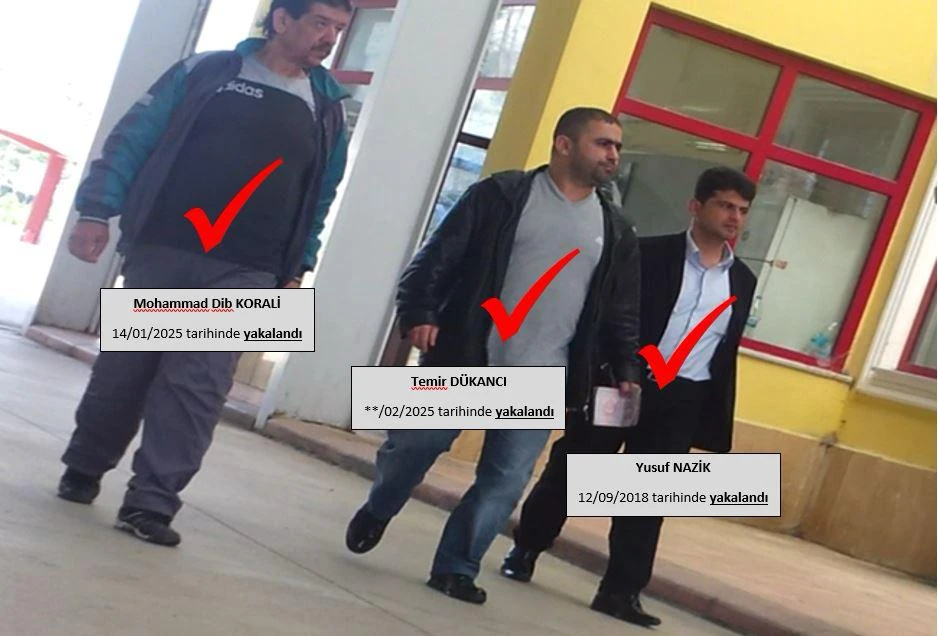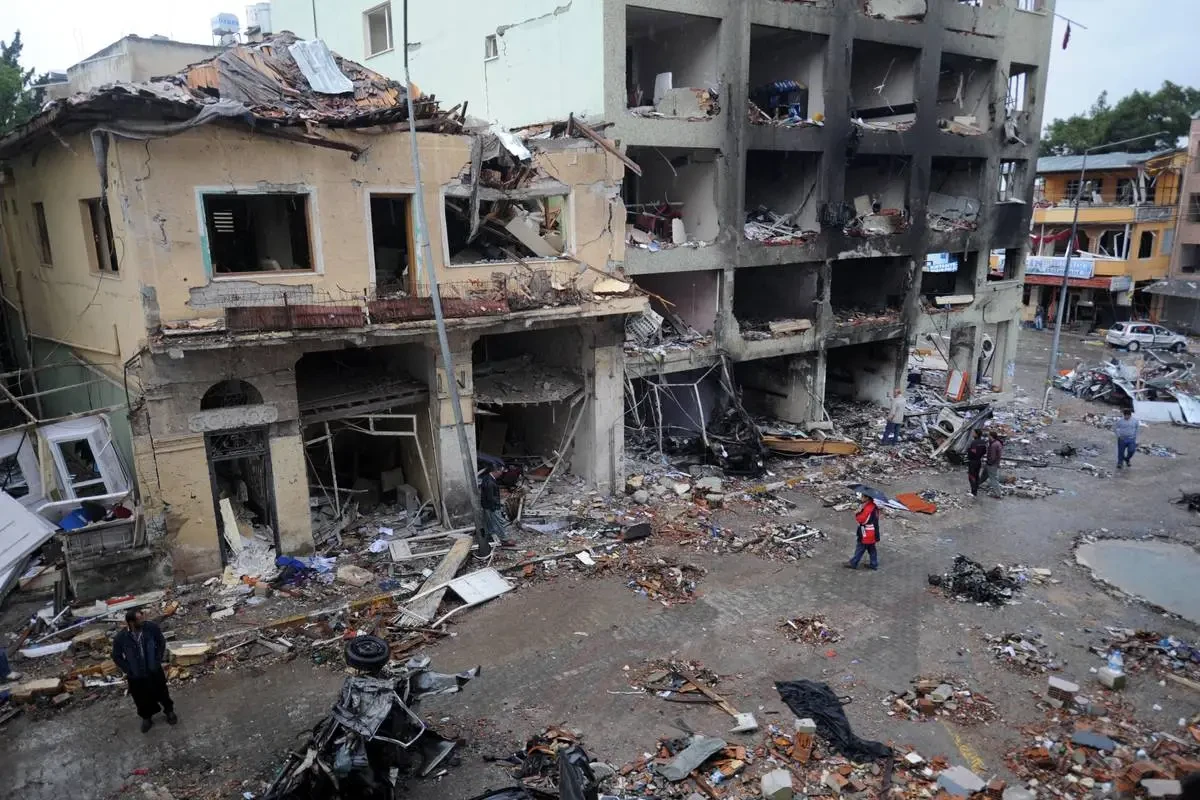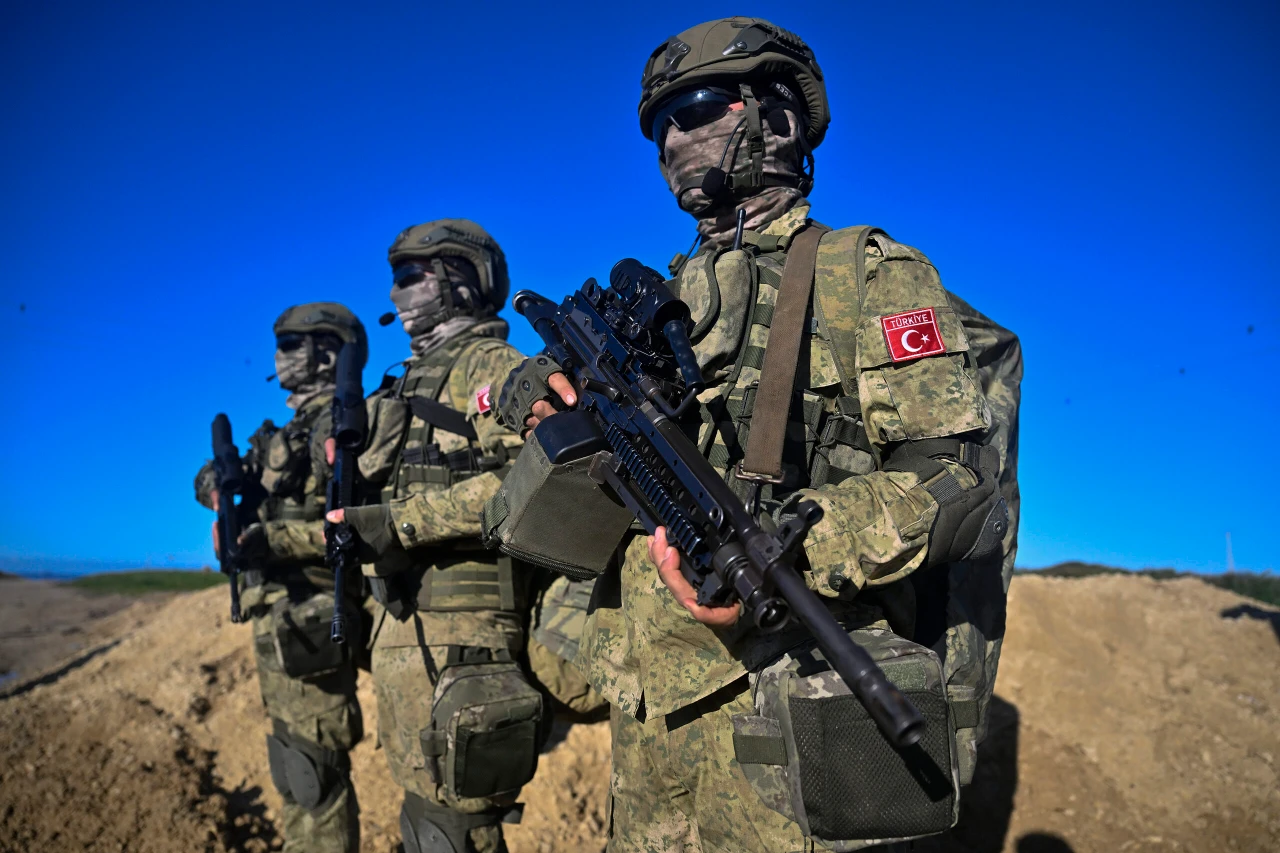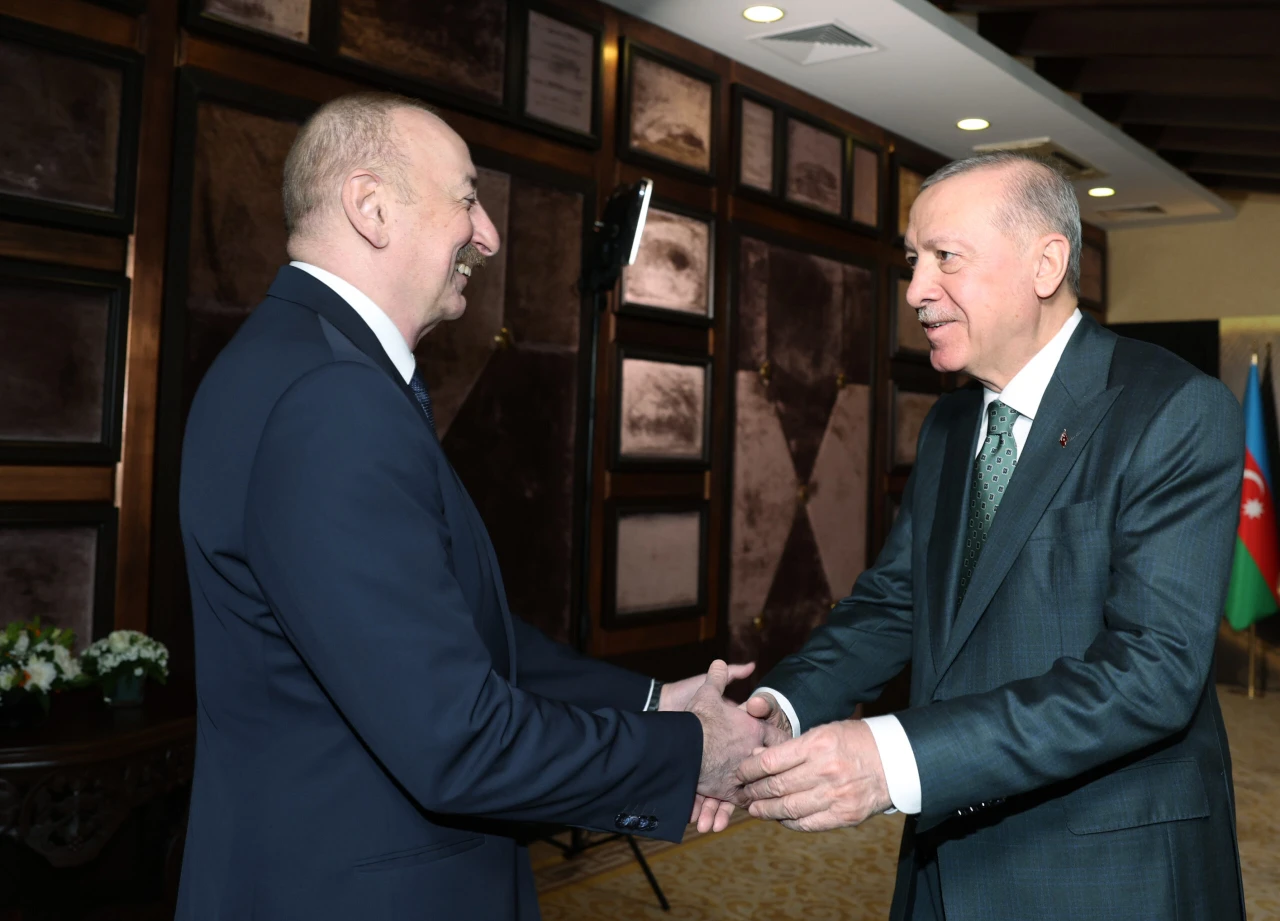Turkish intelligence captures another 2013 Reyhanli bombing suspect
 Turkish intelligence agency (MIT) captured Temir Dukanci, one of the perpetrators of the terrorist attack in Reyhanli in 2013 in which 53 people were killed, as he was about to flee from Syria to Lebanon. (AA Photo)
Turkish intelligence agency (MIT) captured Temir Dukanci, one of the perpetrators of the terrorist attack in Reyhanli in 2013 in which 53 people were killed, as he was about to flee from Syria to Lebanon. (AA Photo)
Turkish intelligence operatives have arrested Temir Dukanci, a suspect linked to the 2013 terror attack in Reyhanli, which claimed 53 lives. Dukanci was detained while attempting to flee from Syria to Lebanon, security sources confirmed.
Dukanci’s role in 2013 Reyhanli bombing
According to intelligence reports, Dukanci was involved in facilitating the transport of explosives used in the attack via sea routes into Türkiye.
Additionally, he helped procure vehicles that carried the explosives.
Dukanci was found to have ties to Syrian intelligence and had been under close surveillance by the National Intelligence Organization (MIT).
Due to recent developments in Syria, he was preparing to escape to Lebanon, where he intended to regroup with militant operatives to plan further attacks on Turkish diplomatic missions abroad.

Arrest operation near the Syria-Lebanon border
Dukanci, who was listed in the “orange category” of Türkiye’s most-wanted terrorists, was identified as seeking a fake passport to facilitate his escape. Once his exact location was confirmed, MIT launched a cross-border operation near the Syria-Lebanon border, successfully apprehending him before he could leave Syria.
Following his capture, Dukanci was extradited to Türkiye and handed over to the Hatay Provincial Police Department for further investigation.
MIT’s track record in counterterrorism
Dukanci’s arrest follows a series of successful intelligence operations by MIT targeting individuals responsible for the 2013 Reyhanli attack.
In 2018, MIT captured and repatriated Yusuf Nazik, another key perpetrator of the bombing. More recently, in January 2025, authorities apprehended Muhammed Dib Korali in Syria and brought him back to Türkiye.

Türkiye’s second-bloodiest terrorist attack in history
The car bombings on May 11, 2013, in Reyhanli, a border town in Hatay province, marked one of the deadliest terror attacks in Türkiye’s history, second only to the 2015 Ankara bombing. The attacks left 53 dead and 146 injured.
Two cars, packed with explosives, were detonated in quick succession, first in front of the Reyhanli Municipality building at 1:37 p.m. and three minutes later near the post office. The blasts caused massive destruction, with many civilians among the casualties.
Investigations revealed that the attack was orchestrated by a Syrian pro-Assad group allegedly linked to the Syrian intelligence agency, Al-Mukhabarat.
The suspects, led by Nasir Eskiocak, were accused of carrying out the bombings under orders from Yusuf Nazik, a figure later captured in Syria by Türkiye’s National Intelligence Organization (MIT) in 2018.
Nazik confessed to planning the attack and was sentenced to 53 consecutive life terms.
Prior intelligence warnings indicated possible attacks from Syria. The National Intelligence Organization had flagged movements of explosive-laden vehicles from Syria into Türkiye weeks before the bombings.
Security lapses, including non-functional surveillance cameras in Reyhanli and alleged negligence by local authorities, drew significant criticism. In the aftermath, several police and intelligence officials faced charges for failing to act on prior warnings.
The bombings intensified anti-Syrian sentiment among local residents, who blamed Syrian refugees for increasing tensions in the border regions. In response, authorities imposed a temporary media blackout on reporting about the attack, which was later lifted.
Though initial reports implicated the Al-Qaeda-affiliated Al-Nusra Front, the primary responsibility was attributed to the pro-Assad group.
The investigation led to the arrest of 32 suspects, 20 of whom were eventually charged. Some reports also suggested involvement by other groups like Daesh, but these claims were dismissed by officials.
The international community condemned the attacks. U.S. Secretary of State John Kerry expressed solidarity with Türkiye, as did Germany, Azerbaijan, and numerous other nations.
Domestically, then-Prime Minister Recep Tayyip Erdogan and Foreign Minister Ahmet Davutoglu vowed to hold those responsible accountable while urging citizens to resist provocations aimed at derailing Türkiye’s peace and democratization efforts.



